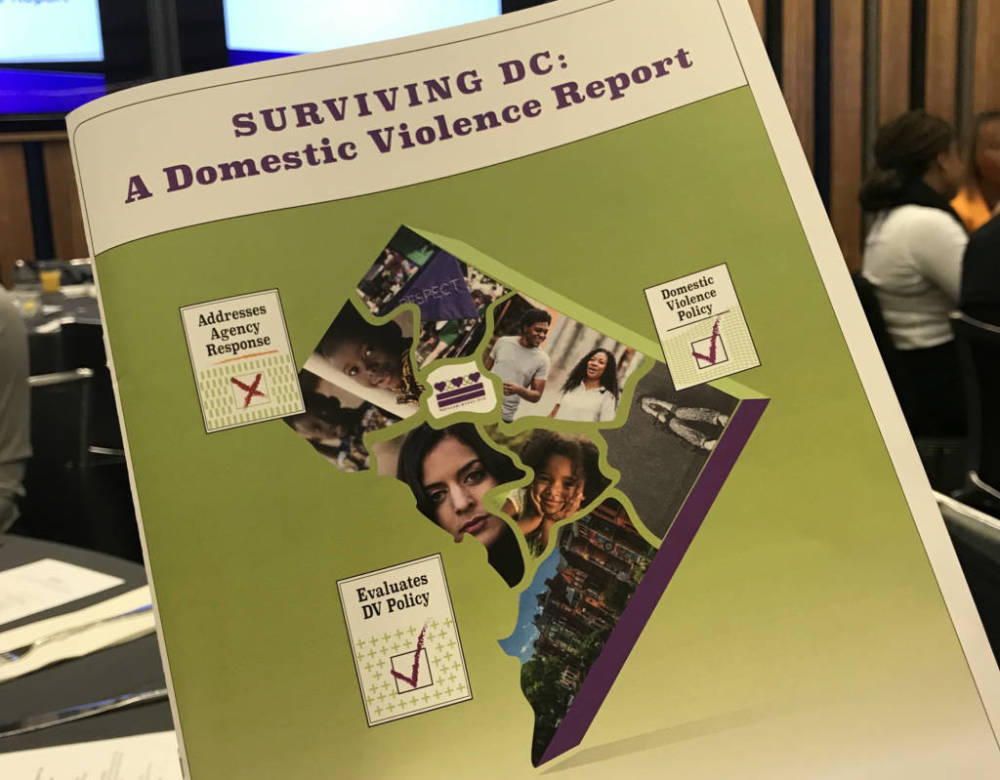Results of a survey of District agencies and feedback from three focus groups composed of more than 50 victims of domestic violence revealed an absence of domestic violence policies in the city. Such policies outline the agency’s response when staff or community members are experiencing domestic violence.
An estimated 39 percent of female residents in D.C. have been physically or sexually assaulted by an intimate partner, according to the National Intimate Partner and Sexual Violence Survey published in 2017.
“When I was denied shelter, I asked the workers where I should go,” one survivor said. “[The Department of Human Services] told me, ‘I don’t know, figure it out.’”
Residents trying to navigate abusive relationships often turn to District agencies for assistance, including for services such as housing, protection and medical care. The D.C. Coalition Against Domestic Violence conducted the survey to assess how these entities guide their staff to respond to issues of domestic violence and provide appropriate services. The coalition hopes this data can be used to inform better policy citywide. They recommended every agency have a domestic violence policy and mandatory training for employees.
Councilmembers Allen, Gray, Grosso, McDuffie, Nadeau and Silverman signed a letter requesting the Washington Metropolitan Area Transit Authority and 21 agencies under the mayor join the D.C. Council in participating in the survey. The D.C. Housing Authority was the only agency that did not respond.
As agencies were filling out surveys, the coalition partnered with Bread for the City and So Others Might Eat in September to host survivor focus groups. They encouraged participants to share their experience with local agencies and discuss how that agency could better support victims of domestic violence — both for their staff and their clients.

Survivor feedback is included throughout the report and focused on five agencies that participants had the most interaction with: D.C. Housing Authority, Department of Human Services, Metropolitan Police Department, Office of Unified Communications and Washington Metropolitan Area Transit Authority.
“We have had interest from some agencies in receiving assistance in developing a DV Policy for their agency,” said Dawn Dalton, policy director for the D.C. Coalition Against Domestic Violence, “and we are happy to have gotten some inquiries from nonprofit partners about implementing a DV Policy in their organizations — linked more to their staff experiencing domestic violence.”
Victims of domestic violence are especially at risk of becoming homeless. The D.C. Council Judiciary Committee fought to include a little more than $15 million in this year’s budget to provide housing supports for residents experiencing homelessness who are fleeing domestic violence. As part of this funding, there are an additional 957 units of permanent and transitional housing vouchers and subsidies for those at risk. Organizations are currently applying for this funding for their transitional housing programs, and those awards are anticipated to be distributed by Jan. 1, according to Michelle Garcia, director of the D.C. Office of Victim Services and Justice Grants. The applications will go through a peer review process as well as an internal review process by OVSJG.
“We try to make sure we put the resources with the people and organizations that we trust,” Allen said at an Oct. 31 release event for the coalition’s report card.
Garcia also announced at the event that a District-wide domestic violence policy will go into effect on Jan. 1 based on best practices and centered on the needs of survivors. The policy, which was in the works prior to the release of the report card, addresses domestic violence along with sexual assault and stalking.
“We very much view this as an opportunity to enhance our work,” Garcia said. “We know we can always do more.”

Correction (11/24/2018)
This article has been updated to reflect that the Washington Metropolitan Area Transit Authority (Metro) is not a city agency under the mayor. The article initially included WMATA as one of “20 District agencies” that failed the Domestic Violence Report Card. However, WMATA is governed by a board of directors with representatives from D.C., Maryland, Virginia and the federal government. Metro is now named separately — like the D.C. Council — and the number of agencies has been lowered to 19.








